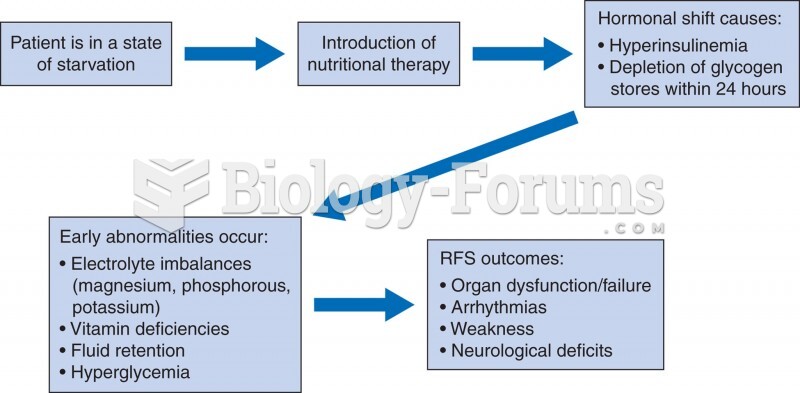Answer to Question 1
The nephrotic syndrome is not a specific disease; rather, the term refers to a syndrome caused by significant urinary protein losses that result from severe glomerular damage. The condition arises because damage to the glomeruli increases their permeability to plasma proteins, allowing the proteins to escape into the urine. The loss of these proteins (typically more than 3 to 3.5 grams daily) may cause serious consequences, including edema, blood lipid abnormalities, blood coagulation disorders, and infections. In some cases, the nephrotic syndrome can progress to renal failure. Nutrition therapy can help to prevent PEM, alleviate edema, and correct lipid abnormalities. Meeting protein and energy needs helps to minimize losses of muscle tissue. High-protein diets are not advised, however, because they can exacerbate urinary protein losses and result in further damage to the kidneys. Instead, the protein intake should fall between 0.8 and 1.0 gram per kilogram of body weight per day; at least half of the protein consumed should come from high-quality sources, such as milk products, meat, fish, poultry, eggs, and soy products. An adequate energy intake (up to 35 kcalories per kilogram of body weight daily) sustains weight and spares protein. Controlling sodium intake helps to control edema; therefore, the sodium intake may be limited to 1000 to 2000 milligrams (1 to 2 grams) daily. If diuretics prescribed for the edema cause potassium losses, patients are encouraged to select foods rich in potassium. A diet low in saturated fat, trans fats, and refined sugars may help to control elevated LDL and VLDL levels. Dietary measures are usually inadequate for controlling blood lipids, however, so physicians may prescribe lipid-lowering medications as well. In some cases, treating the underlying cause of nephrotic syndrome is sufficient for correcting the lipid disorders. Multivitamin/mineral supplementation can help patients avoid nutrient deficiencies; nutrients at risk include iron and vitamin D.
Answer to Question 2
B







